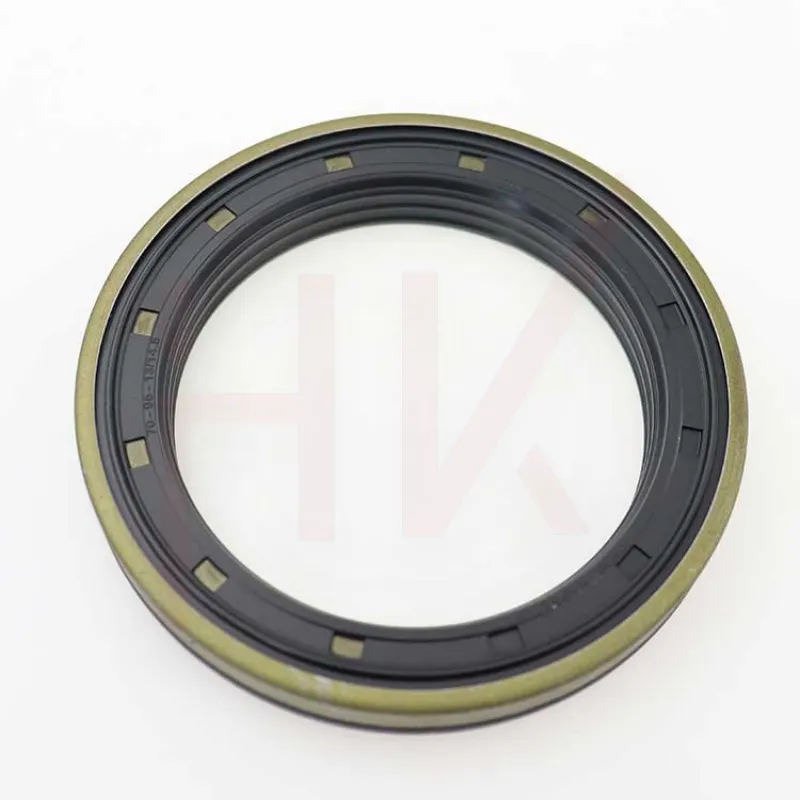నవం . 26, 2024 23:44 Back to list
Understanding the Importance of Seals in Hydraulic Motors for Optimal Performance
Understanding Hydraulic Motor Seals Importance and Functionality
Hydraulic systems are integral to modern machinery, providing power and motion control in various applications, from construction equipment to manufacturing processes. At the heart of these systems lies the hydraulic motor, where hydraulic fluid is converted into rotational energy. However, the efficiency and effectiveness of hydraulic motors heavily depend on one crucial component seals.
The Role of Hydraulic Motor Seals
Hydraulic motor seals play a vital role in ensuring the proper functioning of hydraulic motors. Their primary purpose is to contain hydraulic fluid, preventing leaks and maintaining pressure within the system. This is critical as even minor leaks can lead to significant losses in efficiency, increased wear on components, and potential system failures.
Seals help in maintaining the integrity of the hydraulic system by providing a barrier between moving and non-moving parts, thus preventing contamination from external debris and ensuring that the hydraulic fluid remains clean and effective. By containing the fluid, seals also help to minimize the risk of hydraulic fluid coming into contact with other components, which could result in damage or failure.
Types of Hydraulic Motor Seals
There are several types of seals commonly used in hydraulic motors, each designed for specific applications and conditions. The most prevalent types include
1. O-Rings These circular seals are among the most commonly used in hydraulic applications. Made from various materials, including rubber and polymer, O-rings are versatile and effective for sealing static and dynamic applications.
2. U-Cups Designed for dynamic sealing applications, U-cups provide a more robust sealing surface and are typically used in areas where there is substantial pressure. Their shape allows for better fluid retention and resistance to wear.
hydraulic motor seals

3. Lip Seals These seals consist of a flexible lip that makes contact with the rotating element of the hydraulic motor. Lip seals are effective at preventing fluid escape while accommodating a range of motion.
4. Back-up Rings Often used in conjunction with O-rings and lip seals, back-up rings help prevent extrusion in high-pressure environments. They provide additional support and help maintain the seal's integrity.
Material Selection for Seals
The selection of the right material for hydraulic motor seals is crucial for their performance and longevity. Common materials include Nitrile (Buna-N), Viton, and PTFE, each having its own unique properties. Nitrile is often chosen for its excellent resistance to petroleum-based fluids, while Viton is ideal for high-temperature applications. PTFE is known for its chemical resistance and low friction characteristics, making it suitable for a variety of harsh environments.
Maintenance and Replacement
To ensure the longevity and reliability of hydraulic motor seals, regular maintenance and inspection are essential. Over time, seals can degrade due to wear, exposure to extreme temperatures, or chemical reactions with hydraulic fluids. Inefficient seals can lead to leaks, decreased performance, and costly repairs.
Routine checks should be performed to monitor for signs of leaks or wear. If any anomalies are detected, timely replacement of seals is vital to avoid more extensive damage.
Conclusion
In summary, hydraulic motor seals are indispensable components that contribute significantly to the efficiency and reliability of hydraulic systems. Understanding their types, functionalities, and the importance of material selection is crucial for anyone working in hydraulic applications. Regular maintenance is also essential to ensure these seals perform optimally, ultimately leading to a more efficient hydraulic system and reduced downtime in critical machinery. By prioritizing the condition of hydraulic motor seals, operators can enhance the overall performance and longevity of their hydraulic systems.
-
The Trans-formative Journey of Wheel Hub Oil Seals
NewsJun.06,2025
-
Graphene-Enhanced Oil Seals: Revolutionizing High-Pressure Oil Sealing
NewsJun.06,2025
-
Future of Hydraulic Sealing: Advanced Intelligent TCN Oil Seals
NewsJun.06,2025
-
Don’t Let a Broken TCV Oil Seal Ruin Your Day
NewsJun.06,2025
-
Bio-Inspired Dust Seals for Better Sealing Performance
NewsJun.06,2025
-
Biodegradable and Sustainable Hydraulic Seal Materials
NewsJun.06,2025
-
Top Oil Seal Solutions for Your Industrial Needs
NewsMay.22,2025
Products categories
















